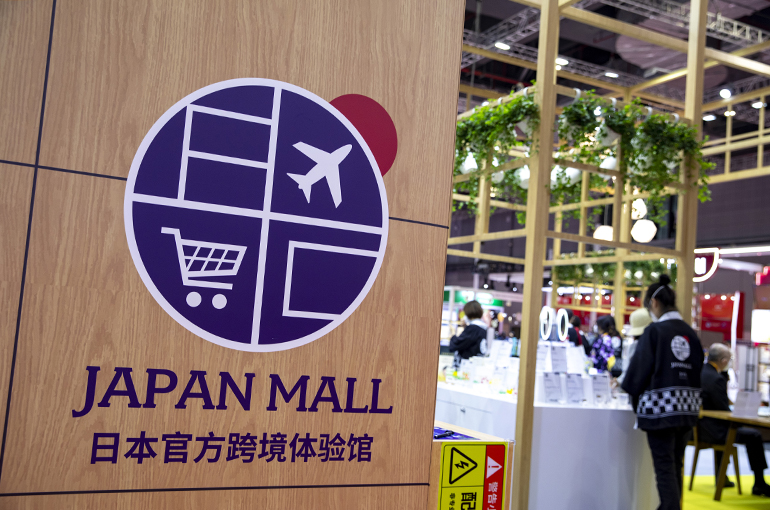 Japanese Brands, Tourism May Be Hit Hard by Souring China Relations, Experts Warn
Japanese Brands, Tourism May Be Hit Hard by Souring China Relations, Experts Warn(Yicai) Nov. 18 -- The sudden deterioration in China-Japan relations could dent the market share of Japanese brands in China, and Japan’s tourism sector in particular may be severely affected, according to experts.
Japan's tourism and agriculture sectors will be most affected by the recent shift in China-Japan relations, Chen Yan, executive director of the Japan Enterprise China Research Institute, told Yicai.
Many Chinese tourists have begun asking travel agencies about canceling or changing their New Year and Chinese New Year travel plans to Japan, which has long been a major overseas destination for Chinese travelers, which is likely to impact Japan’s tourism, hospitality, retail, and other sectors.
Chinese tourists visiting Japan spend mainly on accommodation, eating, and shopping, and their top purchases are electronics, beauty products, and food, the experts noted.
Japan welcomed almost 7.5 million Chinese mainland tourists in the first nine months of this year, more than the nearly 7 million who went last year, according to the Japan National Tourism Organization. In 2024, Chinese visitors spent JPY1.73 trillion (USD11.1 billion) in Japan, accounting for 21 percent of total spending by tourists in the country.
If relations between China and Japan deteriorate further, then both Japanese auto exports to China and sales by Japanese-brand joint-venture cars in China could suffer, said Ji Xuehong, director of the North China University of Technology's Automotive Industry Innovation Research Center.
The competitiveness of Japanese cars in the Chinese market has been declining, and this will accelerate if Japan’s government fails to correct its mistakes, Ji pointed out. He also warned that cooperation with Chinese partners in areas such as electrification, smart car technologies, and other areas could be disrupted.
Some Chinese automakers are working to export to Japan or establish operations there, but Japanese car manufacturers and suppliers are more dependent on China’s market, so the impact on them will likely be more significant, according to Ji.
Sales of Toyota Motor’s Lexus luxury cars rose 4 percent in China to 138,412 units in the nine months ended Sept. 30 from a year earlier, ranking it as the best-selling imported car brand in the country, according to data from the China Passenger Car Association. But imports of the vehicles into China have declined year by year, dropping to 180,800 in 2024 from 235,400 in 2020.
Imports of Japanese home appliances into China are already low, Chen noted, adding that the market share of Chinese manufacturers in Japan and the number of local brands they have acquired keep growing.
About 50,000 Japanese white goods are shipped into China each year, including 30,000 refrigerators and 20,000 washing machines, along with a few hundred air conditioners, according to Wang Juan, a senior analyst at Industrial Online.
In contrast, China is a major consumer of Japanese liquor, with imports reaching CNY22 million (USD3.1 million) in the first eight months of this year, including 836,000 liters of whiskey worth CNY17.4 million (USD2.5 million), according to Chinese customs data. China is also the largest export market for Japanese sake.
Editor: Martin Kadiev